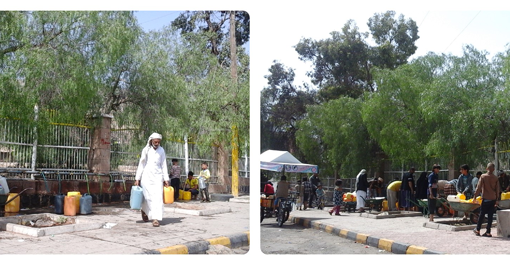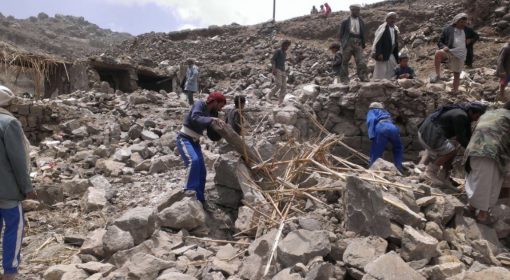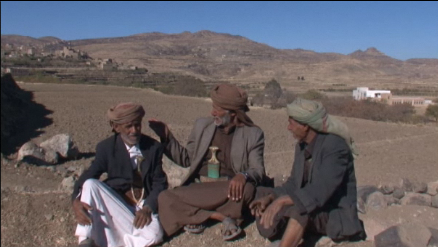by Abraham Abhishek
May 11, 2015
Since March this year, the Yemeni people have been caught in airstrikes being carried out by a Saudi-led, US-backed coalition against the Houthis and army units loyal to ex-president Ali Abdullah Saleh. The international coalition aims to restore the government of President Abd-Rabbu Mansour Hadi.
On Sunday (March 10), the Houthis accepted a 5-day humanitarian ceasefire proposed by the Saudis.
Over 1300 have been killed in the conflict so far. Thousands have had to flee their homes amid destroyed infrastructure and acute shortage of food, water, medicine and fuel.
In an open letter published in The Times on May 9, a UK-based group of diplomats, academicians and aid workers has made an urgent plea to ensure a lasting ceasefire and safe passage of fuel to Yemeni towns and villages. Fuel is a particularly key component in this conflict, propping up the economy and the day-to-day in the water-scarce nation. Agriculture depends critically on diesel-powered pumps. Fuel is also key to fishermen along its long coastline, industries and their supply chains.
The Houthis accuse the Saudi-led coalition’s blockade of Yemen as the main reason for the fuel crisis. The open letter warns of an unprecedented humanitarian disaster if the blockade is not eased. Human Rights Watch warns that the civilian casualties could be “…dwarfed by the harm caused to civilians by the coalition blockade on fuel, if it continues.”
Read the full text of the letter below:
Yemen will become largest 21st century man-made disaster if conflict continues, warn experts http://t.co/mGwSkMggBH pic.twitter.com/A2rleYOXDc
— Middle East Eye (@MiddleEastEye) May 10, 2015
The signatories include:
- James Firebrace (Former Director General of Consumers International, Author on water, conflict and economy in Yemen) jf@firebrace.com
- Stephen Day CMG (Former Head of FCO Middle East Department and Diplomat in Yemen)
- Frances Guy (former British Ambassador to Yemen, 2001-2004)
- Victor Henderson (former British Ambassador to Yemen, 1997-2001)
- Professor Tony Allan (King’s College London, Author on Yemen and Middle East water security, Stockholm Prize Winner)
- Professor Nora Ann Colton (Deputy Vice Chancellor, University of East London, Author on Political Economy of Yemen)
- Professor Allan Hill (Population and International Health, University of Southampton, Author on Yemen demography)
- David Bryer (Former Director of Oxfam UK and former Yemen and Middle East Director)
- Dr Christopher Ward (Institute of Arab and Islamic Studies, University of Exeter, and Author of The Water Crisis in Yemen)
- Noel Brehony (Former Diplomat and Author of Yemen Divided)
- Stephen Akester (Director MEP fisheries consultancy and senior EU Consultant in Yemen)
- Dr Christopher Handley (Consultant and Author of Water Stress in Yemen)
- Helen Lackner (Editor of Why Yemen Matters, social development consultant)
- Paddy Coulter (University of Oxford, former Progressio and Oxfam Director for Yemen)
- Robert Wilson (Former Diplomat in Yemen and writer on Yemeni history)
- Robert Grose (Former CIIR / Progressio Director for Yemen and HSLP Programme Director)
- Capt Roy Facey (Port Development, Aden and other Yemeni Ports)
- Christopher Dammers (Former Progressio Yemen and Oxfam Field Director, Middle East)
- Dr Gerhard Lichtenthaeler (Author of Political Ecology and the Role of Water, Environment, Society and Economy in Northern Yemen)
- Dr Richard Franceys (Cranfield University, Consultant in Yemen and Author on water management challenges)
- Dr Frank van Steenbergen (Director Meta-Meta consultancy addressing Food Security in Yemen and Horn of Africa)
- Frédéric Pelat (Former Director of Iddeales, writer on the Political Economy of Yemeni Agriculture)
For a deeper understanding of the link between fuel, politics and conflict in Yemen, watch Dr. Adel al-Waishali’s (Sana’a University) presentation ‘Diesel during Yemen’s political crisis in 2011:



